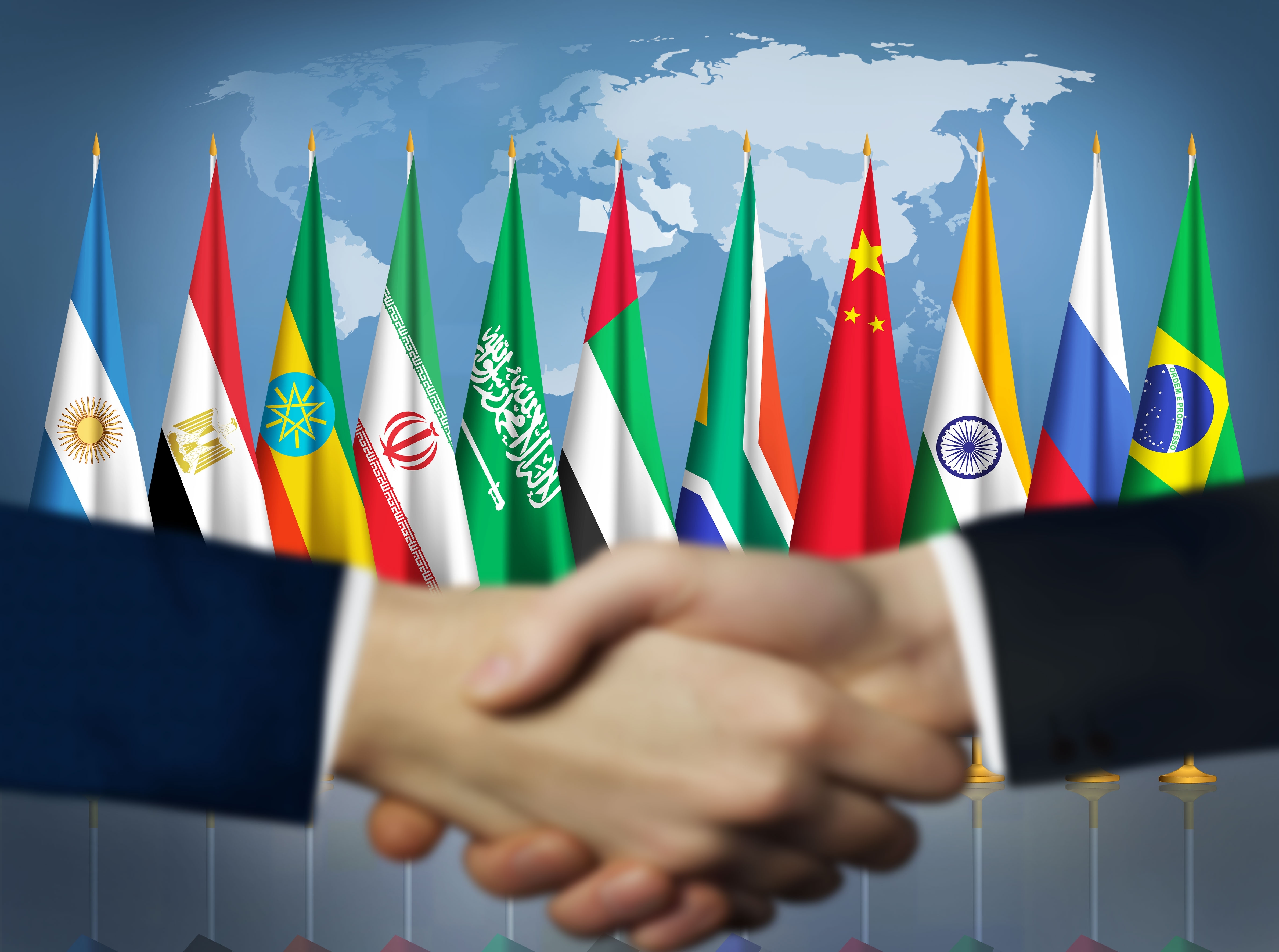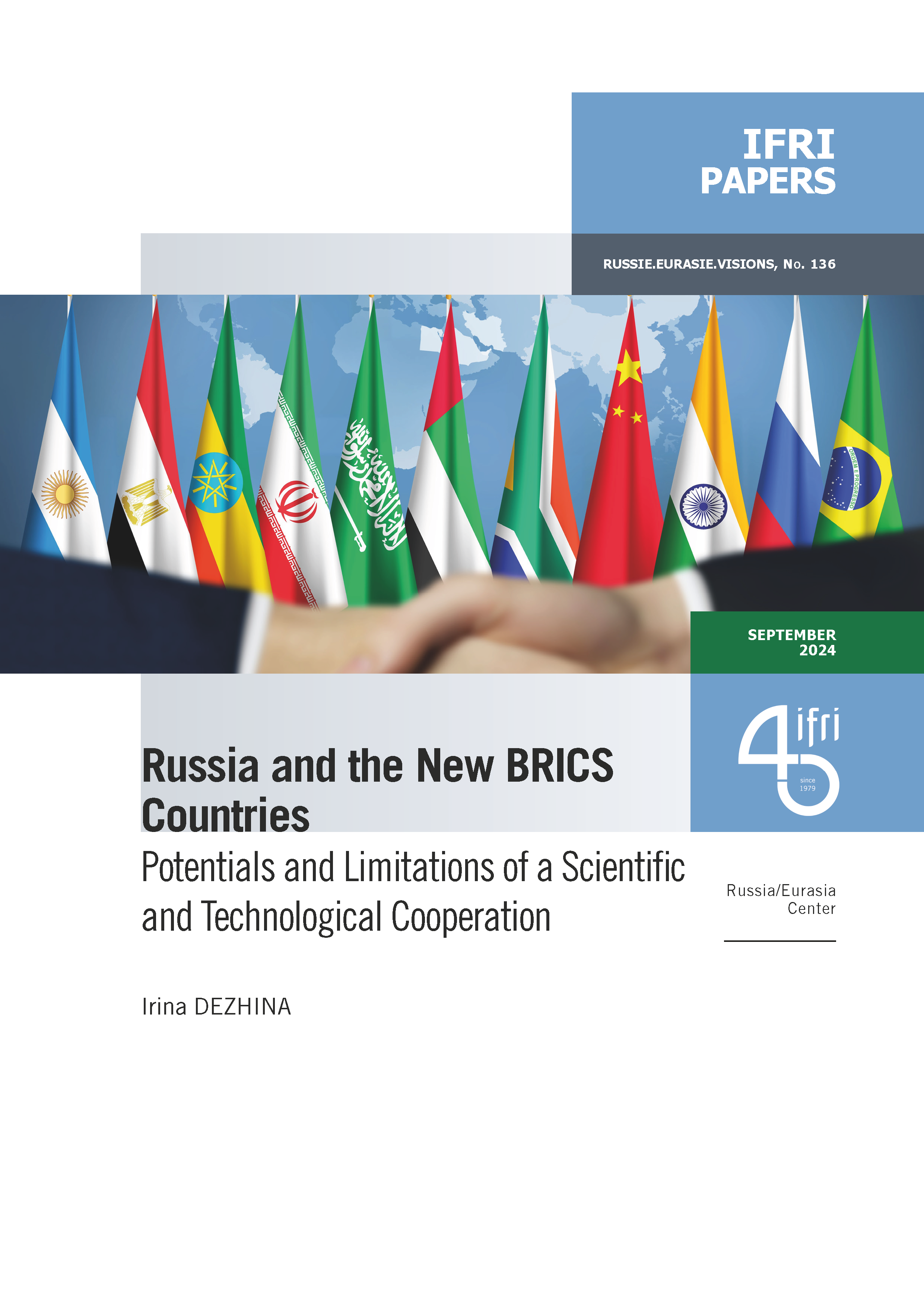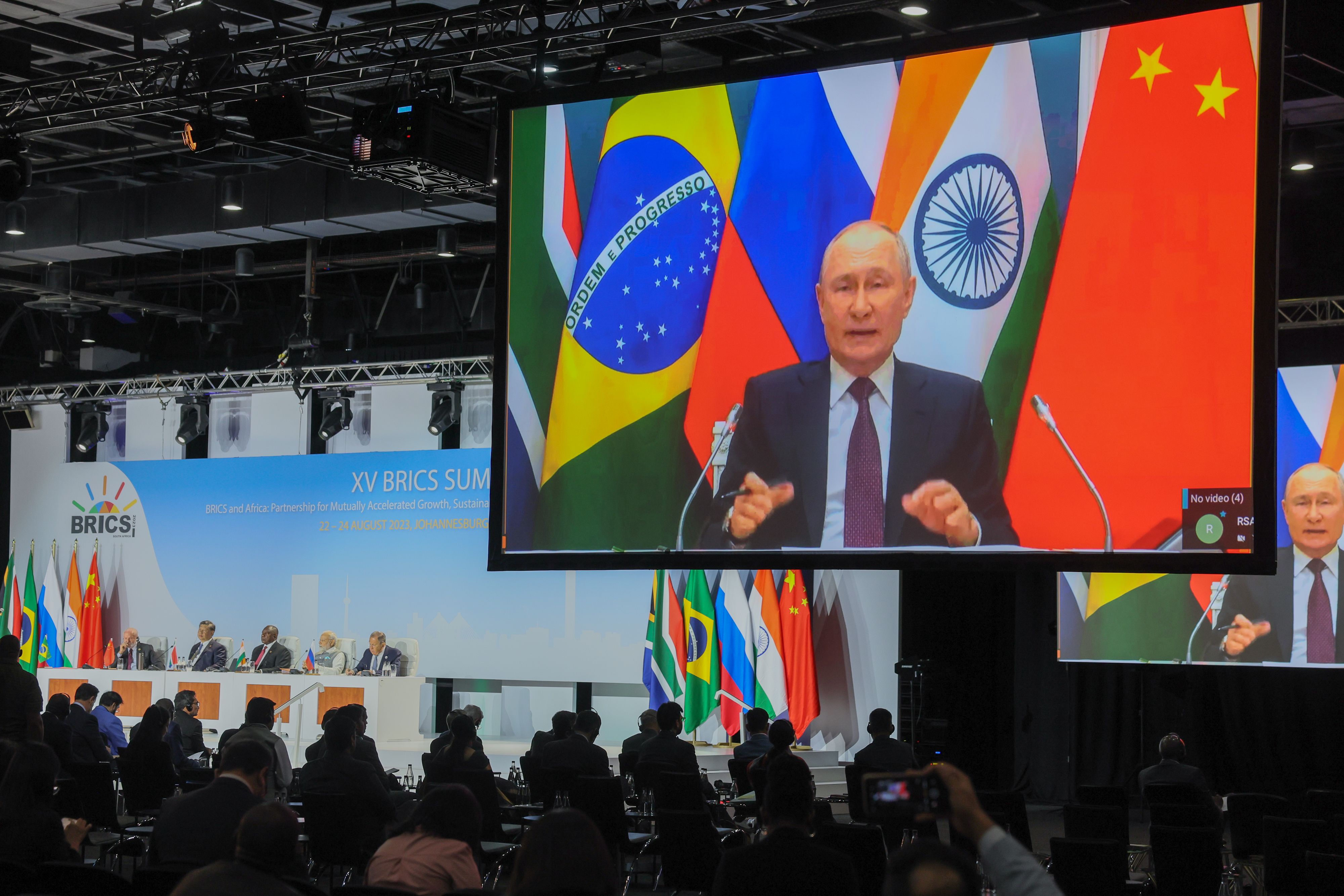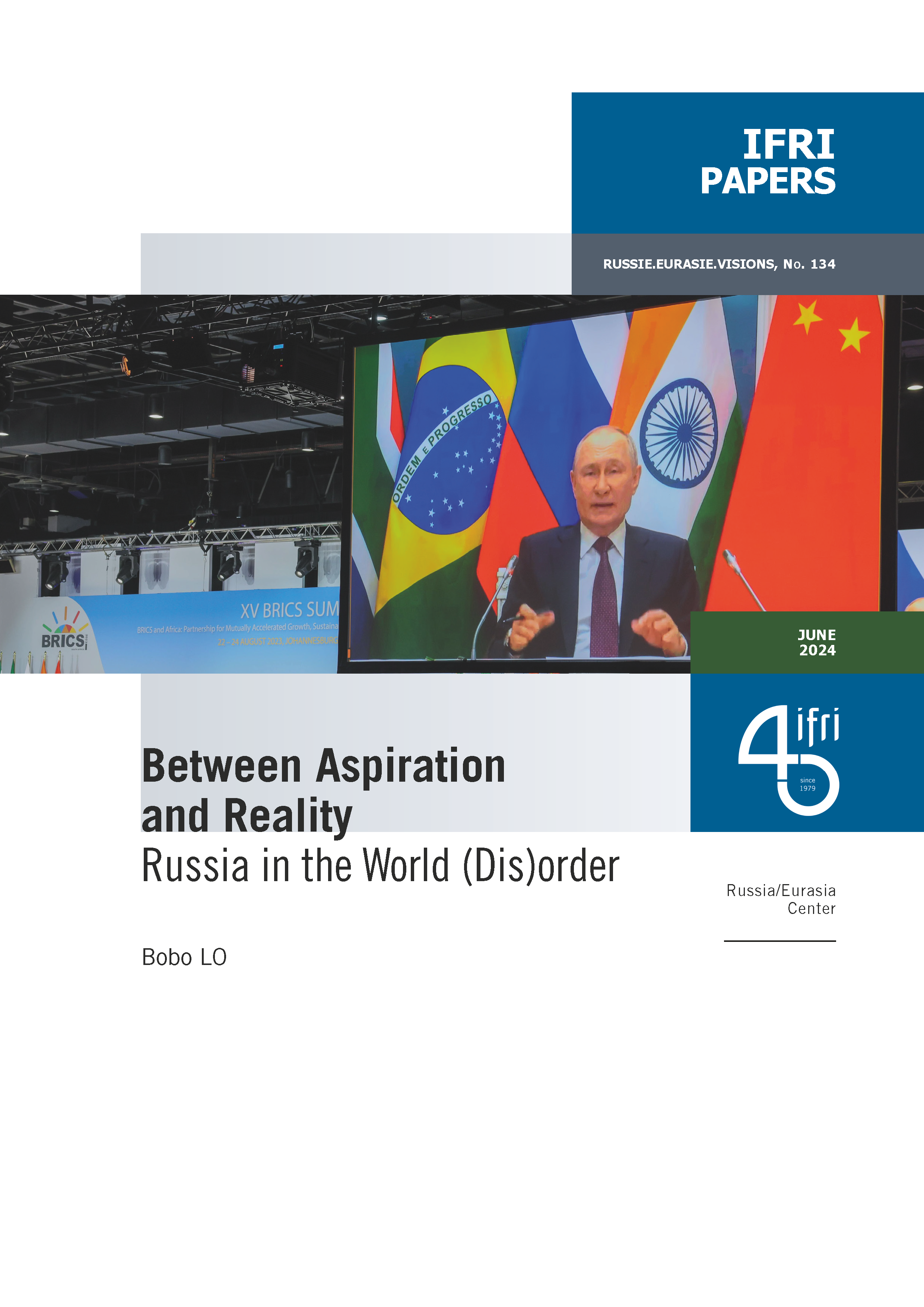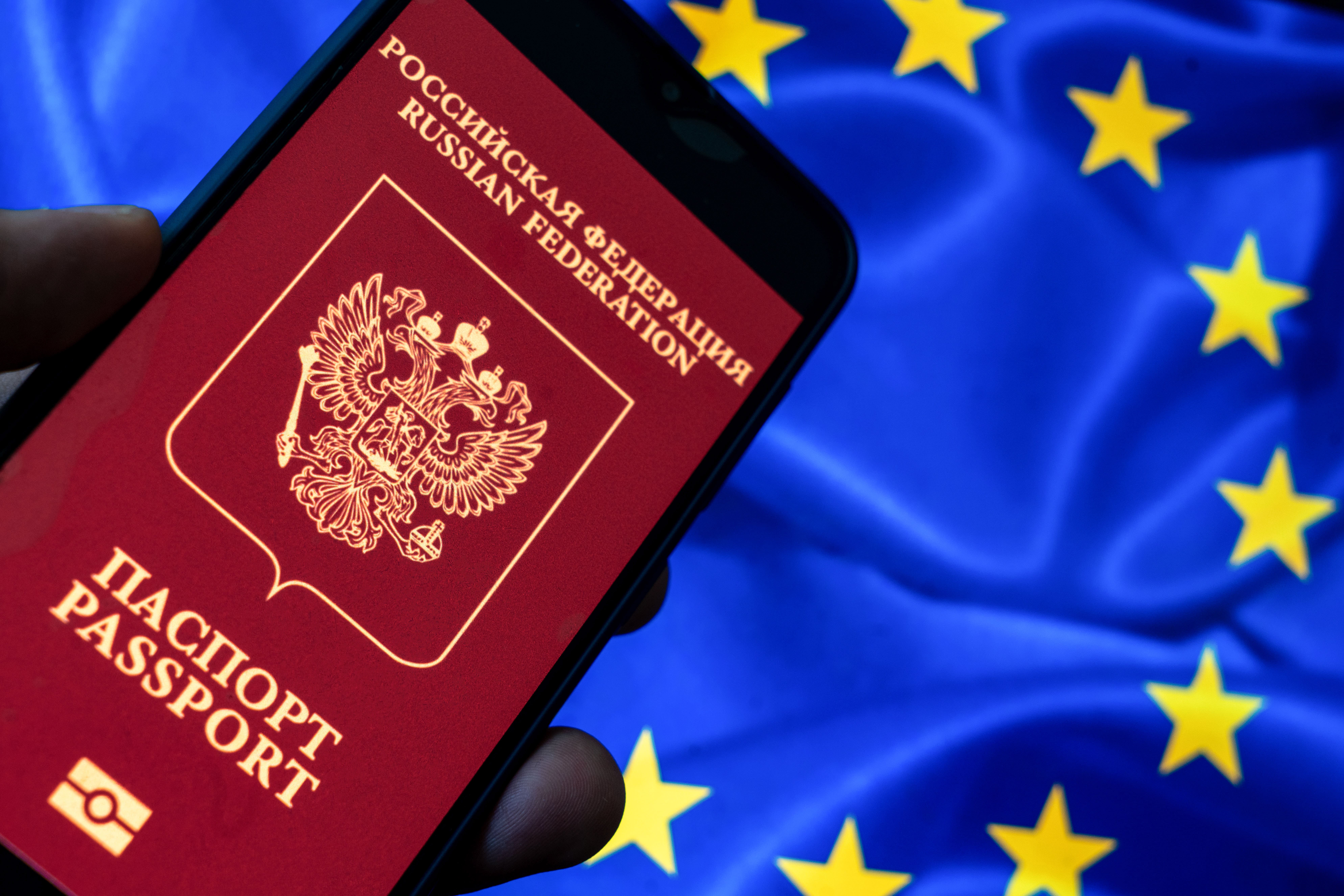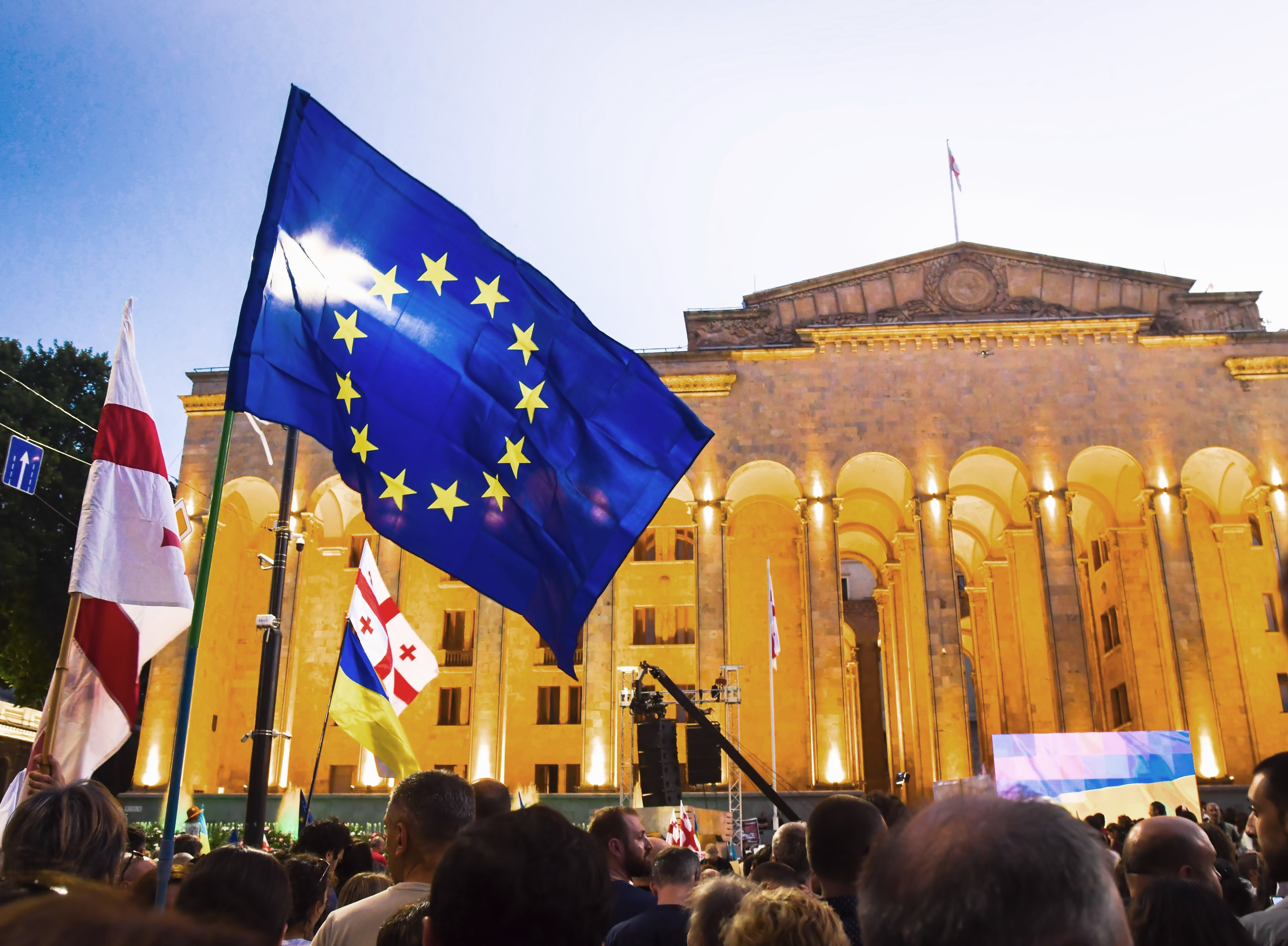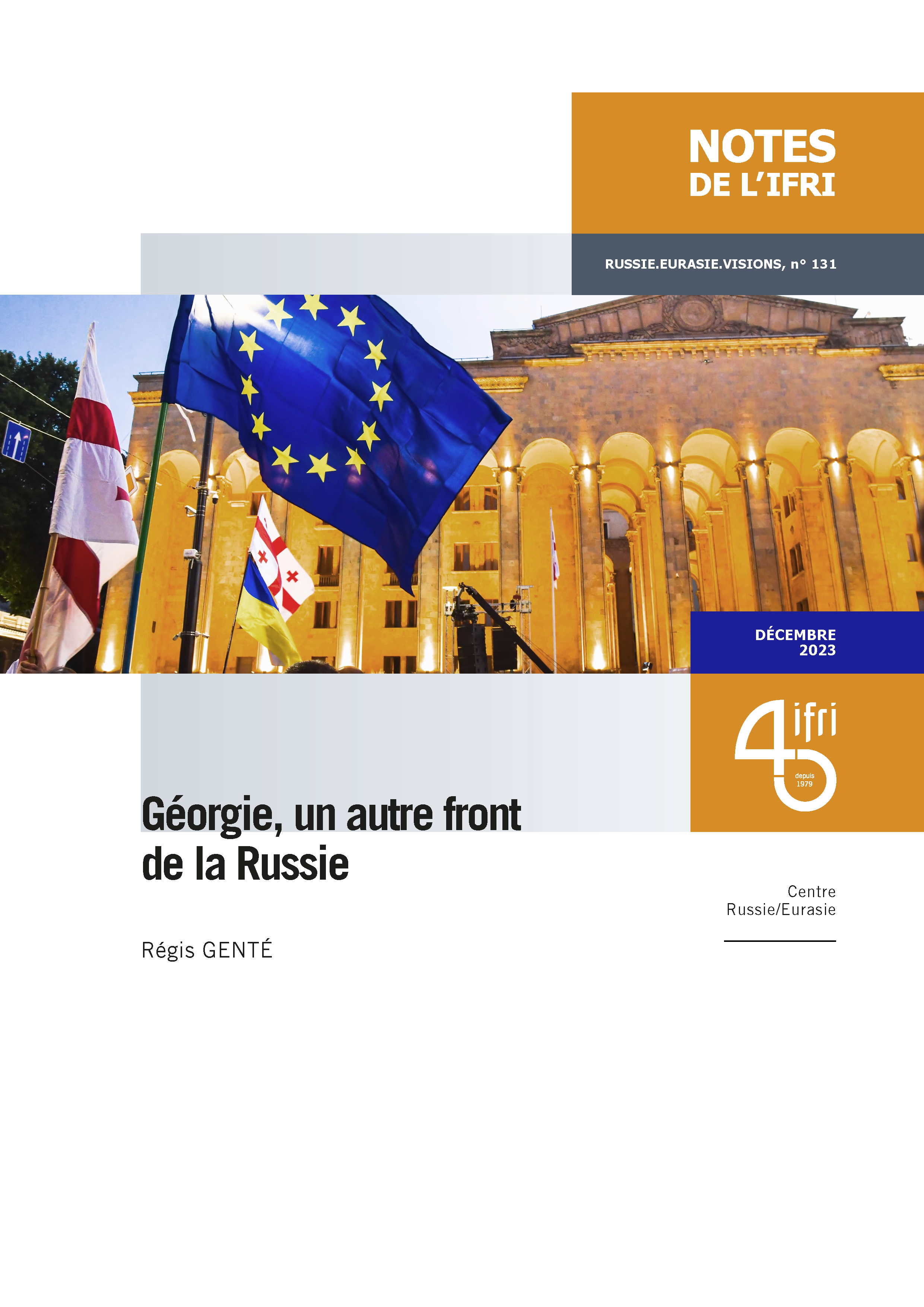Russia/Eurasia Center
Founded in 2005 within Ifri, the Russia/Eurasia Center conducts research and organizes debates on Russia, Eastern Europe, Central Asia, and the South Caucasus. Its goal is to understand and anticipate the evolution of this complex and rapidly changing geographical area in order to enrich public discourse in France and Europe and to assist in strategic, political, and economic decision-making.
Read more


Director of the Russia/Eurasia Center, Ifri
Publications
See all our interventions
Flagship Publications
Titre Bloc Axe
Research Areas
See all our interventions
Titre Axe de recherche
Russian Economy and Society
The Economy and Society research axis within Ifri's Russia/Eurasia Center is interested in economic questions including the impact of Western sanctions on the Russian economy as well as the evolution of society (demography , middle classes, youth, education, opposition, militarization, protest movements, etc.).

Titre Axe de recherche
Russian Domestic Politics
The Domestic Politics research axis within Ifri's Russia/Eurasia Center analyzes Russian domestic politics, the evolution of the political system and its elites, as well as their relations with society.
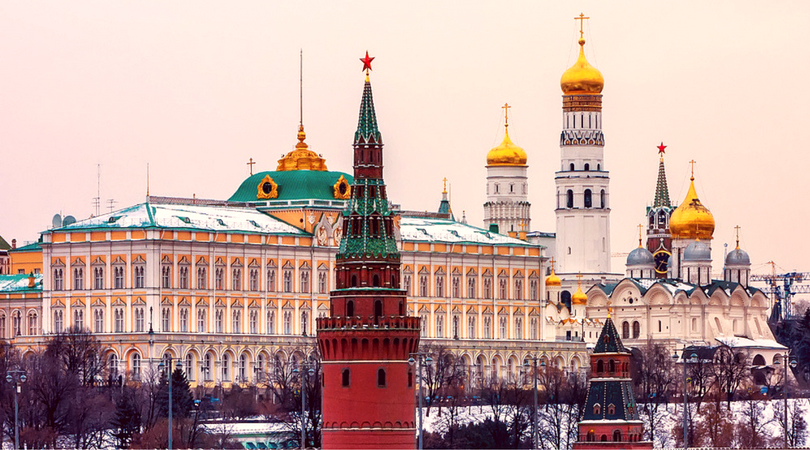
Titre Axe de recherche
Russian Foreign Policy and Defense
The Foreign Policy and Defense research axis within Ifri's Russia/Eurasia Center examines Russia's relations with the former Soviet republics and the rest of the world, particularly the West and China. A specific importance is given to defense and security issues.
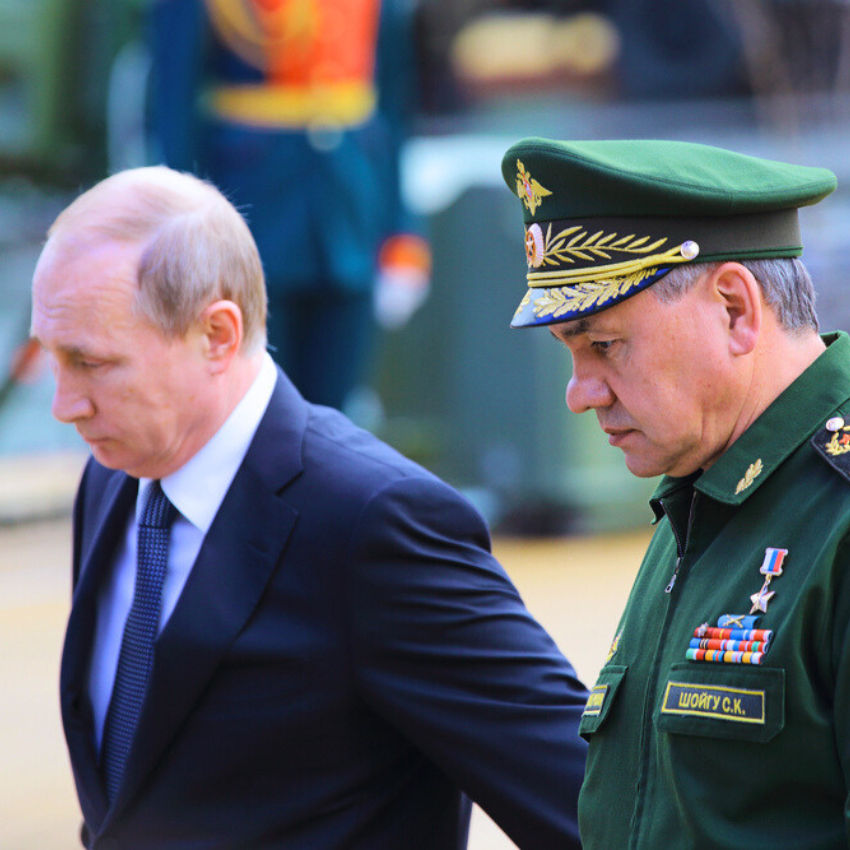
Titre Axe de recherche
Eurasia
The Eurasia research axis within Ifri's Russia/Eurasia Center analyzes internal developments in Ukraine, Moldova, Belarus, Georgia, Armenia, Azerbaijan, Kazakhstan, Uzbekistan, Turkmenistan, Tajikistan and Kyrgyzstan, as well as their relations with the Russian Federation and other regional and global powers.
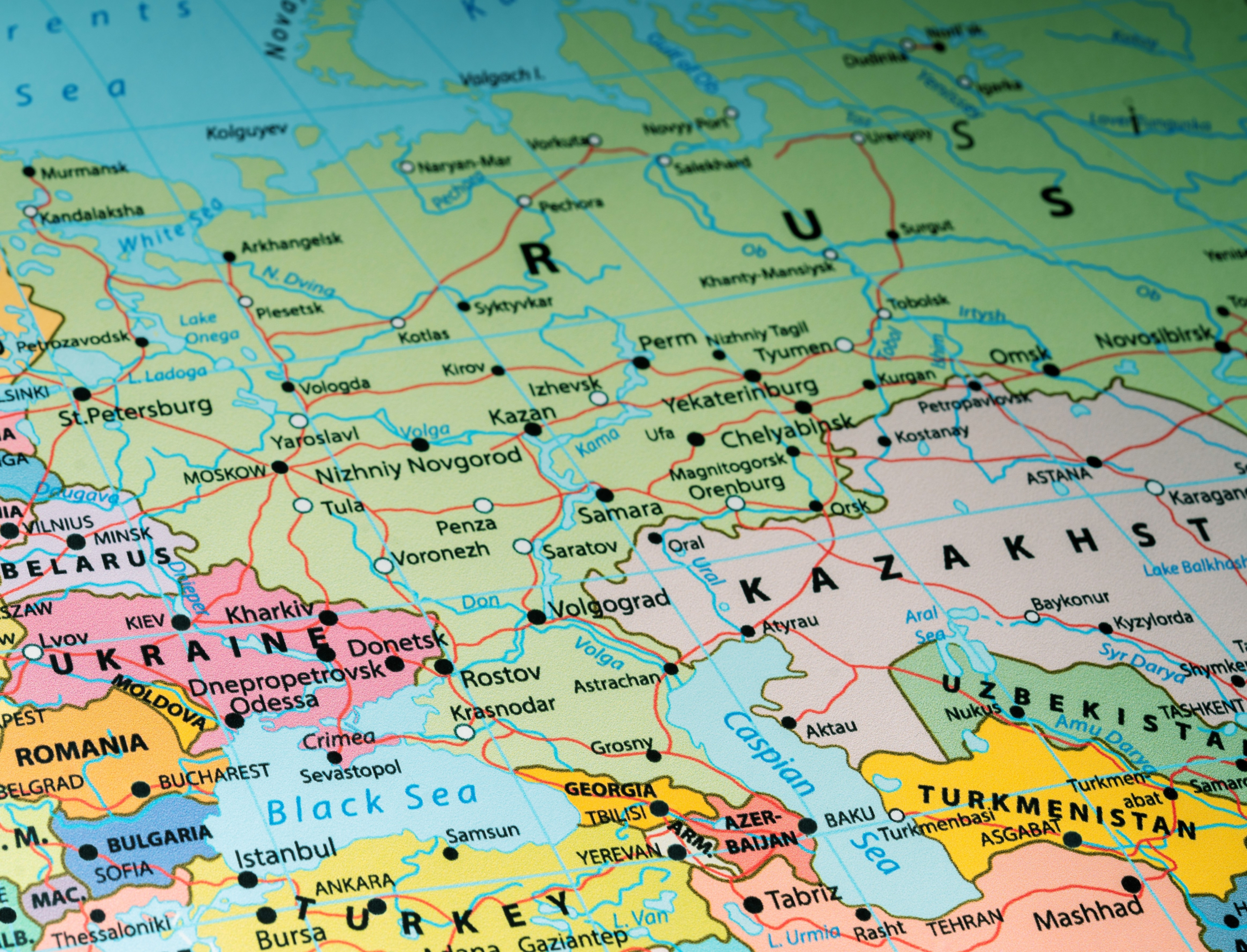
Publications
Gazprom, the Fastest Way to Energy Suicide
Russia is an unavoidable actor in world energy geopolitics. It is also the biggest energy partner of a European Union (EU) that is becoming ever more dependent on outside sources for its energy needs. However, the future of Russia's largest company-Gazprom-and the development of its future production capacities are at the center of a complex financial and political game dominated by numerous uncertainties, including Gazprom's actual reserves, its ability to invest in exploration and production, and its very capacity to develop production. Indeed, back in state hands, Russian gas and oil companies-Gazprom included-do not appear to be in a position to meet their future production commitments. Gazprom's ability to honor its contracts with gas companies in the EU is in fact already the subject of numerous interrogations.
Russia and the WTO: On the Finishing Stretch
Russia is now in the final negotiation phase regarding its accession to the World Trade Organization (WTO). Discussions have been held over the past fourteen years and have contributed indisputably to the transformation of the Russian economy and the modernization of its legislature. If there are still unanswered questions at the start of 2007, the unbalanced nature of the negotiations runs the risk of Russia having to make further concessions to its partners in order to speed up the agreement's conclusion. In the longer term, the main challenge faced by Russian authorities is to ensure that documents that are already in force are transposed.
Russia and the Council of Europe: Ten Years Wasted?
In 1996, the Russian Federation joined the Council of Europe both in spite of and owing to its democratic failings. Accession was, in fact, seen as a step toward democratic conversion. Ten years an, as the Council is presided by Russia for the first time, an initial appraisal can be made using the following questions as guideline: to what extend has the Council of Europe influenced Russia, and to what extend has Russia - taking into account observed regressions - modified the current nature of the Council?
The "Greatness and Misery" of the Higher Education in Russia
Due to its Soviet legacy, Russia has gained a reputation for having a well-trained population and efficient educational system. The facts on the ground are obviously more ambiguous, however. The veritable 'boom' of higher education and the good results of some well-known universities hide the more general fall of average performances and the devaluation of diplomas. Efforts to reform the system are meeting both structural constraints and corruption practices within the educational community. This makes a genuine assessment of Russian degrees dufficult to achiev. In addition, the 'privatization' of large sections of the education system has rendered the problem of inequality of access even more acute.
The EU-Russia Energy Dialogue: Competition Versus Monopolies
Russia and the European Union have clearly entered a new stage in their energy relations, defined by a growing asymmetry between a strengthened national monopoly on the supply side and a gradual opening of markets in Europe. In this context, a multitude of new approaches to EU-Russia relations have been voiced recently by a wide variety of experts. Unfortunately, many of them involve 'defensive' solutions, driven by lack of mutual trust on both sides. Is a positive approach nevertheless still possible? The paper argues that competition is a key universal value in the development of a new and sustainable energy relationship between Russia and Europe. It is clear that EU competition regulators should take the lead in setting up a new framework for EU-Russia energy relations in the future. The success of their endeavors will not only determine the security of energy supply for European consumers, but also that of the Russian and Eurasian energy markets.
The Shanghai Cooperation Organization as "Geopolitical Bluff?" A View from Astana
Since the mid-1990s, the Shanghai Cooperation Organization (SCO) has been an important factor in, and exerts significant influence on both Kazakhstan's international situation and geopolitical processes in Central Asia. Various aspects of Kazakhstan's interests are included in the SCO, among them geopolitics, security, the economy and regional politics. The topics addressed by the SCO can be divided into wide-ranging and often unconnected problems, which are more often than not solved outside the framework of the SCO. In the end, the SCO is only a great 'geopolitical bluff.' And while the USA seems to be almost an 'unofficial partner' because it so influences Central Asia as a whole, the European Union has almost entirely withdrawn from that geopolitical scene. As yet, the SCO poses more challenges and risks for Kazakhstan than it offers advantages.
Abkhazia and South Ossetia: Collision of Georgian and Russian Interests
This article focuses on the deterioration of relations between Georgia and Russia over the secessionist regions of Abkhazia and South Ossetia. Georgia's separatist conflicts are far more than domestic territorial disputes: they have both regional and international implications, and represent one of the principal obstacles to the development of Georgian-Russian relations. As military skirmishes have threatened to escalate, jeopardizing stability in the volatile Caucasus region, President Mikheil Saakashvili's desire to resolve these protracted conflicts has become symbolic of his vigorous approach to tackling Georgia's more intractable problems.
Dr. Tracey German is a Lecturer in Defense Studies at the Joint Services Command and Staff Colege, King's College, London. Her research focuses on security in the Caucasus region, particulary the Chechen conflict and Georgian-Russian relations, as well as energy issues in former Soviet states.
Russie.Nei.Visions is an electronic collection of policy papers published in French, English and Russian by the Russia/NIS Center, Ifri.
Multiplying Sources as the Best Strategy for EU-Russia Energy Relations
Energy security and gas supply have become issues of central concern for the European Union as reserves in the North Sea are dwindling. Russia is offering to replace the North Sea supplies in the future, but the EU should be aware that Moscow will not be able to fully meet Europe's demand in the future. Russia will remain a significant supplier, but the EU needs to look for other possible sources of gas supply in Northern Africa, in the Caspian Sea region, in the Barents Sea, and in the Persian Gulf. Diversification is the best strategy for enhancing European energy security.
The EU and Russia: the Needed Balance Between Geopolitics and Regionalism
While the EU conceives its neighborhood via regional policies, Russia sees it in terms of geopolitics. A large part of the misunderstanding which prevails on both sides concerning the 'Common Space for External Security' stems from the clash between these different mental maps. By examining the respective and reciprocal implications of these approaches, this paper underlines the need for both parties to become conscious of the conceptual gap between their viewpoints, and to try ultimately reducing it.
Workshop on EU-Russian Relations
In collaboration with its partners, Ifri is currently supporting a Task Force on the future of EU-Russia relations. The first workshop was held on 2 December 2005 in Paris.
The Team

Our research fellows: Russia/Eurasia Center
Support independent French research
Ifri, a foundation recognized as being of public utility, relies largely on private donors – companies and individuals – to guarantee its sustainability and intellectual independence. Through their funding, donors help maintain the Institute's position among the world's leading think tanks. By benefiting from an internationally recognized network and expertise, donors refine their understanding of geopolitical risk and its consequences on global politics and the economy. In 2024, Ifri will support more than 70 French and foreign companies and organizations.








